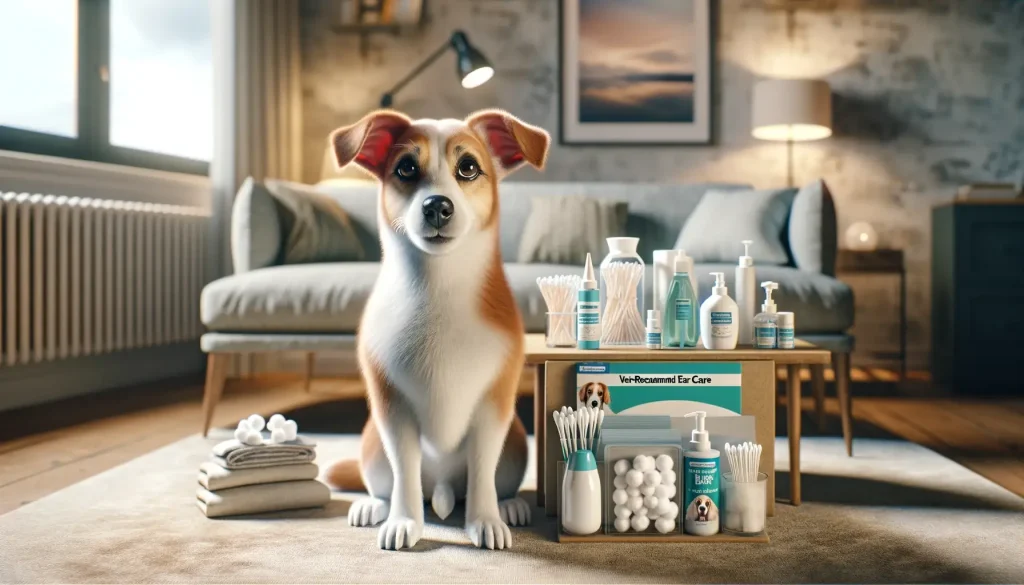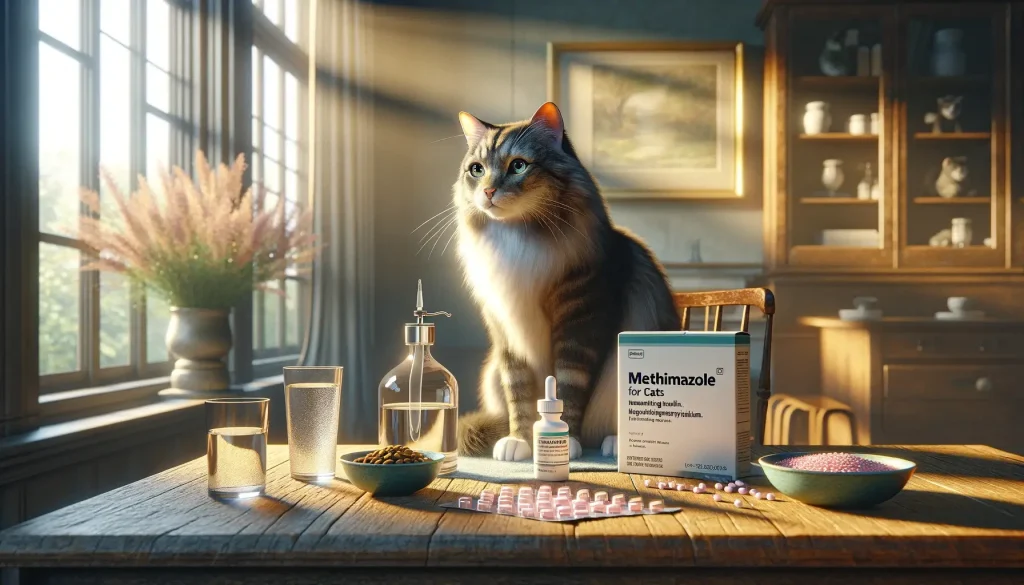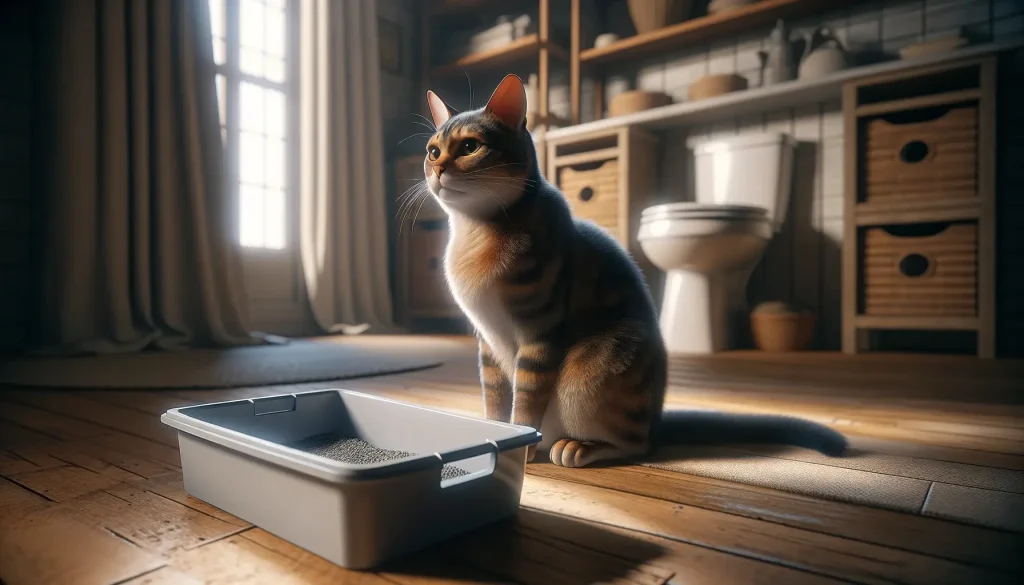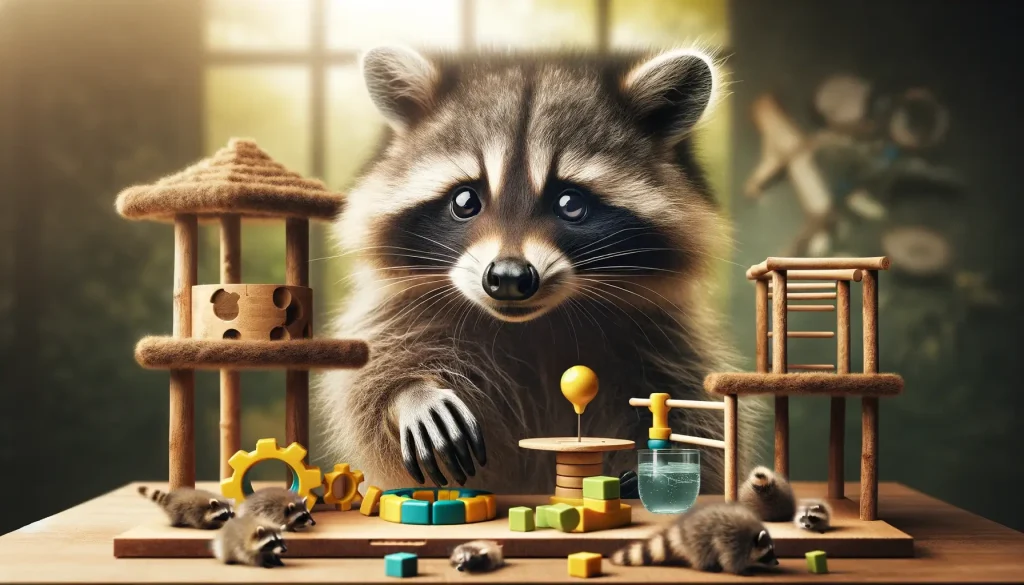
Is a Pet Raccoon Right for You?
Before bringing a raccoon into your home, you must navigate through a maze of legal considerations. The legality of owning a raccoon varies widely, with many areas imposing stringent regulations or complete bans. Once legal hurdles are cleared, preparing an appropriate enclosure is your next step. Raccoons require a lot of space to roam and explore, with indoor enclosures needing reinforcement against their natural curiosity and strength.
Their diet is another complex aspect, requiring a balanced mix of proteins, fruits, vegetables, and nuts to prevent obesity and other health issues. And when it comes to veterinary care, finding a raccoon-knowledgeable vet is vital for their health and longevity. Raccoons need specific vaccinations, flea and tick prevention, and regular health checks to live a full, healthy life.
Regarding mental and physical wellbeing, enrichment plays a significant role in a raccoon’s life. They need constant stimulation through toys, climbing structures, and interactive activities to keep them engaged and out of trouble. Each aspect of care, from health to habitat, requires a commitment to learning and resources.
The question then becomes, are you ready to meet the comprehensive needs of a pet raccoon?
Pet Raccoon Care FAQs
Have questions about keeping a pet raccoon? You’re not alone. Let’s tackle some common queries with straightforward answers.
Can I legally own a pet raccoon?
Legalities vary widely. Before considering a raccoon as a pet, check the laws in your state, city, and county. Many places have strict bans or regulations.
What should I feed my pet raccoon?
Raccoons are omnivores needing a balanced diet. Include meat, eggs, insects, fruits, vegetables, and nuts. Avoid foods high in calories, sodium, and sugar. Remember, portion control is key to prevent obesity.
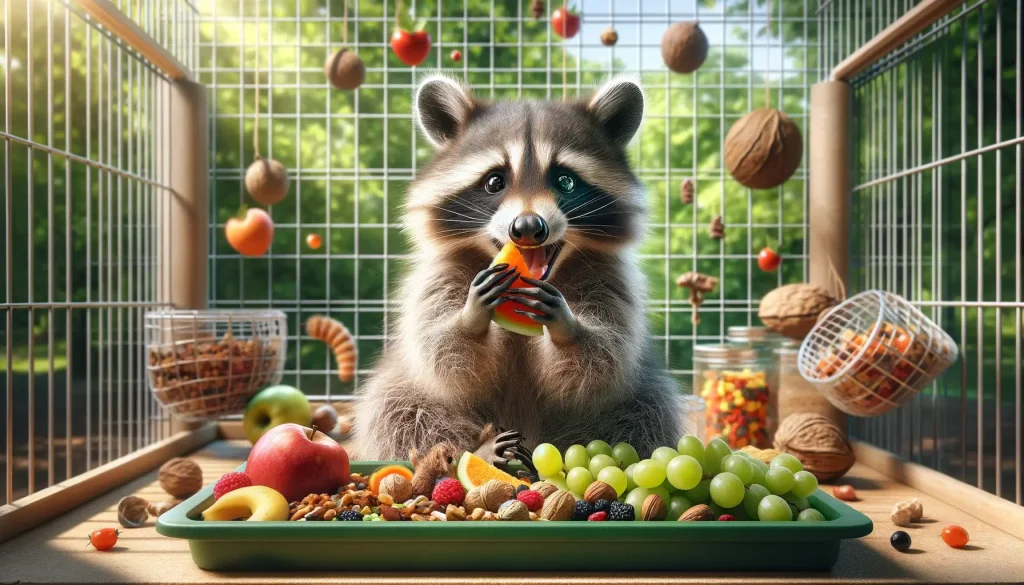
What kind of enclosure is best for a pet raccoon?
Raccoons need space to roam and explore. Outdoor enclosures should be secure and filled with toys and climbing structures. For indoors, reinforce areas against raccoon curiosity and strength, and baby-proof your home.
What does raccoon veterinary care entail?
Seek a vet experienced with raccoons. Essential healthcare includes vaccinations against diseases like distemper and rabies, flea and tick prevention, deworming, and considering sterilization to manage moodiness but avoid declawing or defanging.
How do I keep my raccoon entertained?
Enrichment is crucial. Offer toys, climbing structures, and interactive activities. Focus on cognitive, sensory, food, motor, and social enrichment to mimic wild challenges and support wellbeing.
Raccoon Health Care Essentials
Caring for a pet raccoon goes beyond feeding and playtime. Their healthcare needs are unique and require attention to detail. Here’s what you need to know to keep your raccoon healthy and happy.
First, finding the right vet is critical. Not all veterinarians have experience with raccoons. It’s important to locate a vet who understands their specific health requirements. This ensures they receive the proper vaccinations and care.
Vaccinations are a cornerstone of raccoon health. Raccoons need specific killed vaccines, such as those for distemper and rabies, due to their sensitivity. These vaccines help prevent serious diseases that can affect not only your pet but also humans and other animals they come in contact with.
Flea and tick prevention is another crucial aspect. Products like Revolution are tailored for raccoons and safe to use. This prevents flea and tick-borne diseases, keeping your raccoon healthy.
Raccoons are prone to obesity, making diet management essential. Their diet should include a variety of meats, vegetables, fruits, and nuts. Avoid high-calorie and high-sugar foods. Portion control helps maintain their weight and prevent health issues like kidney disease, common from improper feeding.
Deworming is also important. Raccoons can carry roundworms, a threat to their health and potentially yours. Regular deworming keeps these parasites at bay.
Finally, consider sterilization to manage moodiness in adult raccoons. Unlike declawing or defanging, which is not advised due to the ethical concerns and health risks involved, sterilization is a safe way to keep your raccoon’s behavior in check.
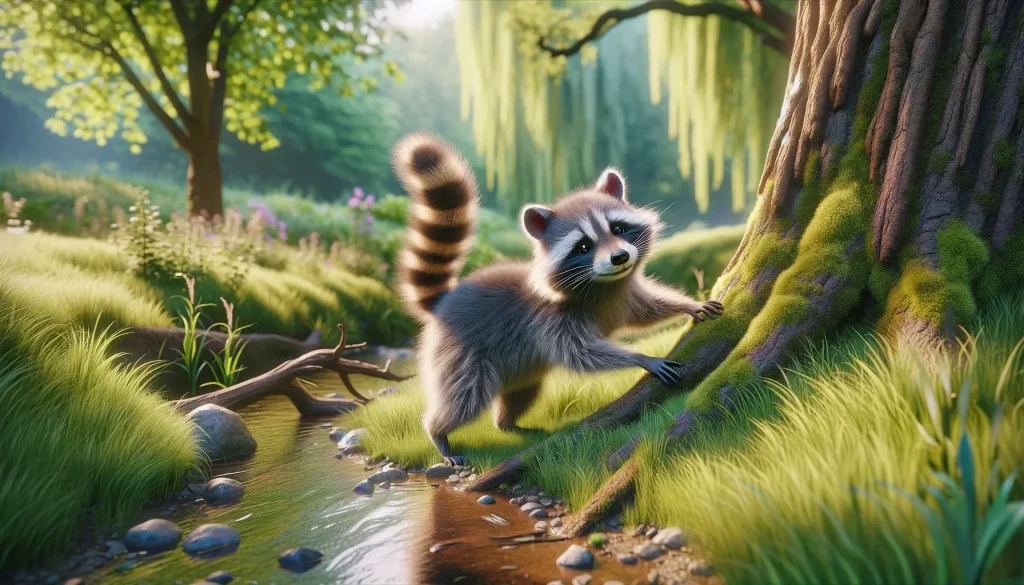
Raccoon Fun Facts
Thinking of getting a pet raccoon? Here are some fun facts to know. Raccoons are full of surprises and their behaviors are fascinating. Learn what makes raccoons unique.
- Raccoons use tools: In the wild and at home, raccoons have been observed using rocks and sticks to accomplish tasks, showcasing their problem-solving abilities.
- They have a wide vocal range: Raccoons communicate with a variety of sounds including growls, whistles, and screams to express different emotions or call out to one another.
- Raccoons wash their food: Often seen “washing” their food before eating, this behavior mimics foraging techniques in the wild, even though it’s not strictly necessary in captivity.
- Nighttime is playtime: Being nocturnal, raccoons are most active at night. This means your pet raccoon might be more interested in playing while you’re trying to sleep.
- They have sensitive hands: A raccoon’s front paws are incredibly dexterous, comparable to human hands, and contain over four times more sensory receptors than their back paws, which they use to explore and manipulate their environment.
- Unique face masks: The characteristic “mask” of a raccoon isn’t just for show. It helps reduce glare and enhances their night vision, making them effective nocturnal hunters.
- Exceptional memory: Raccoons have been shown to have excellent memory, capable of remembering solutions to tasks for up to three years—a trait that makes them both fascinating and challenging pets.
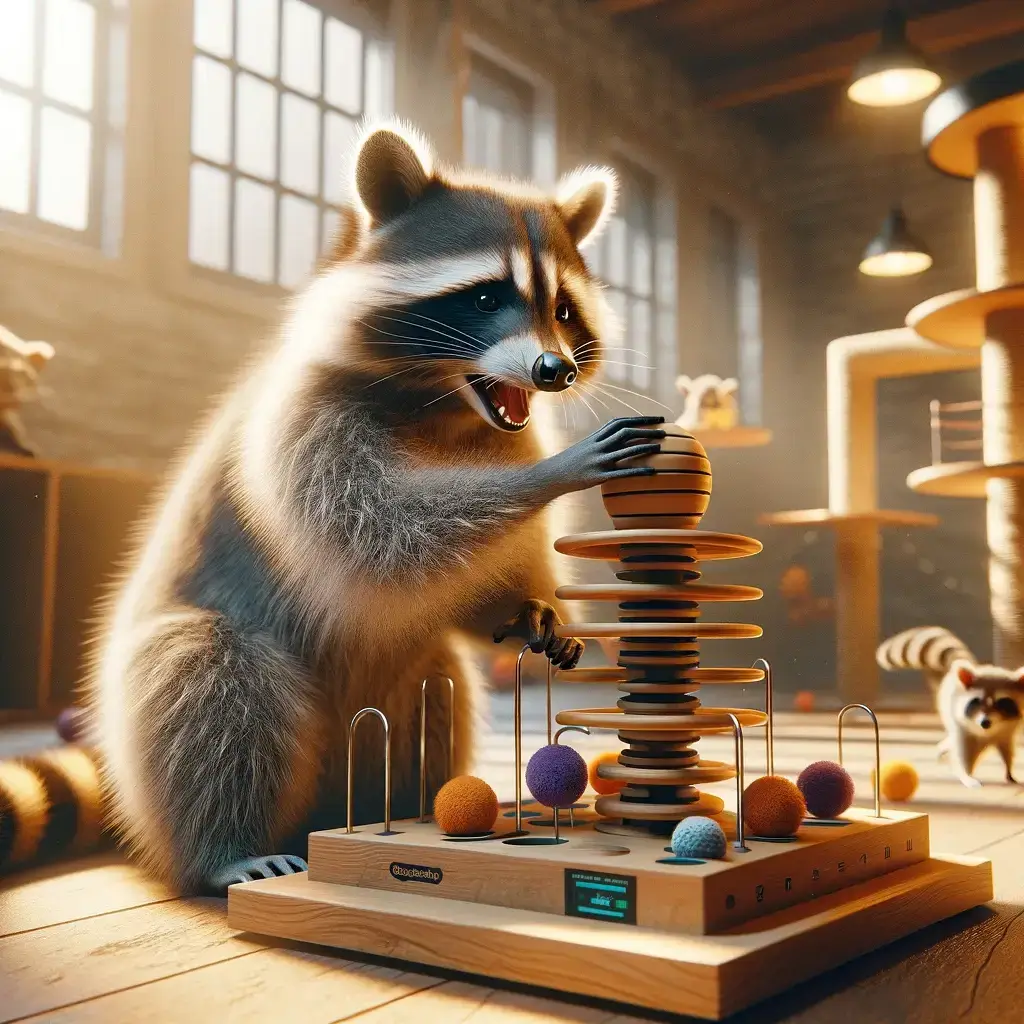
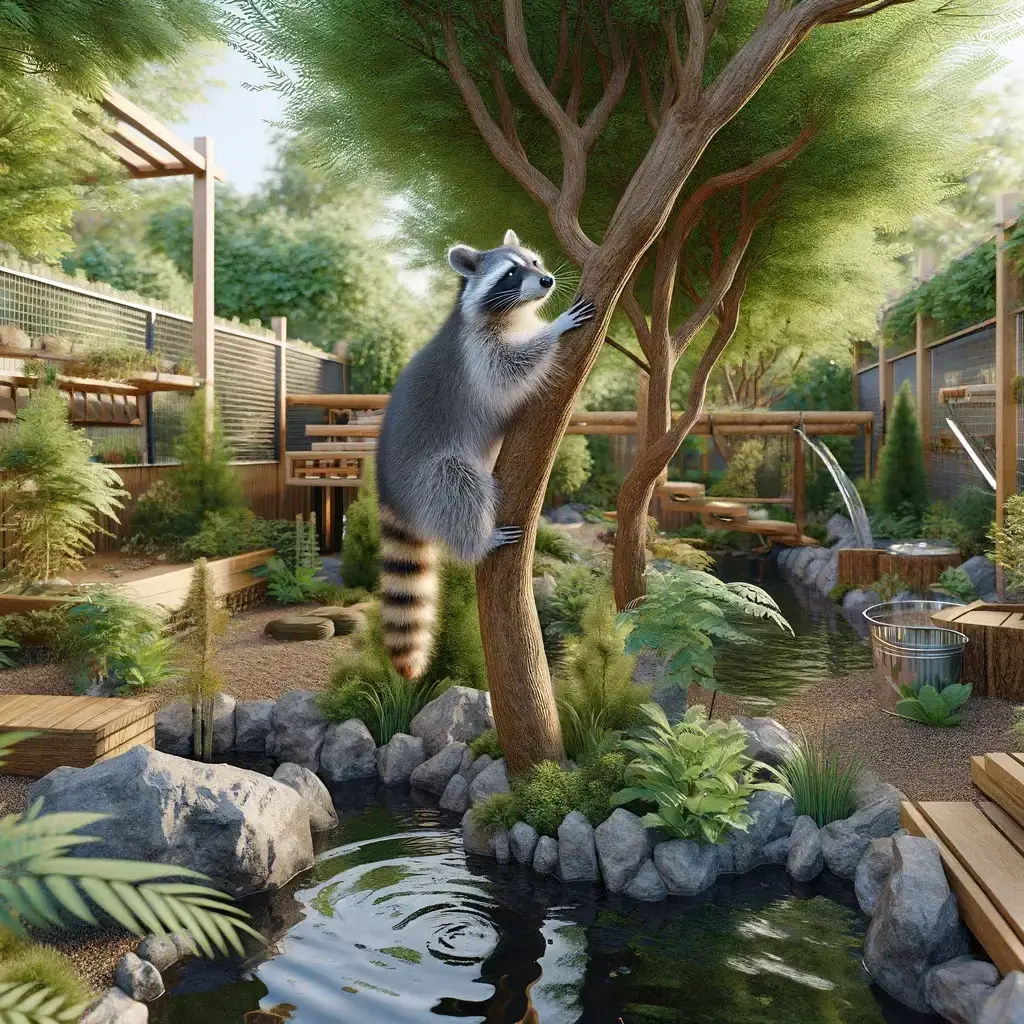
Activities for a Happy Raccoon Pet
Raccoons are smart. Very smart. This means they need a variety of mental and physical challenges to stay satisfied. Simply giving them a ball or a stuffed toy isn’t enough. They crave puzzles, obstacles, and games that make them think and act. Here’s how you can provide that.
- Puzzle Feeders: These are excellent for turning mealtime into an engaging activity. By hiding food inside these puzzles, you encourage your raccoon to use their intelligence and dexterity to get to the treats.
- Interactive Toys: Toys that require manipulation, like those that squeak when pressed or release treats when solved, can entertain raccoons for hours.
- Obstacle Courses: Setting up a mini obstacle course in their enclosure can stimulate their natural climbing and foraging instincts. You can use branches, boxes, and safe household items to create a challenging setup.
- Digging Boxes: Raccoons love to dig. By providing a box filled with safe substrate or materials like leaves, straw, or even crumpled paper, you allow them to indulge in this natural behavior.
- Water Play: If there’s one thing most raccoons love, it’s water. A shallow water tray with toys or floating treats can provide fun and refreshment, especially on hotter days.
Raccoons need social interaction too. Spending time playing with your pet raccoon strengthens your bond and satisfies their social requirements. Remember, every raccoon has its own personality and preferences. What excites one raccoon might not interest another. It’s important to try different activities and toys to find out what your pet enjoys the most.
Beginner Guide to Raising Quail at Home
What are the Signs of a Dog Concussion?
What Causes Your Dog’s Ears to Smell Bad?
When your dog’s ears start to emit an unpleasant odor, it might leave you puzzled…
Methimazole Treatment for Cat Hyperthyroidism
Methimazole plays a crucial role in managing feline hyperthyroidism, a condition marked by an overactive…
Got Hummingbirds in your Backyard? Here’s How to Care for Them.
Why Does Your Cat Pee Outside the Litter Box?
Cat’s Litter Box Issues It’s not uncommon for cat owners to face the frustrating dilemma…


